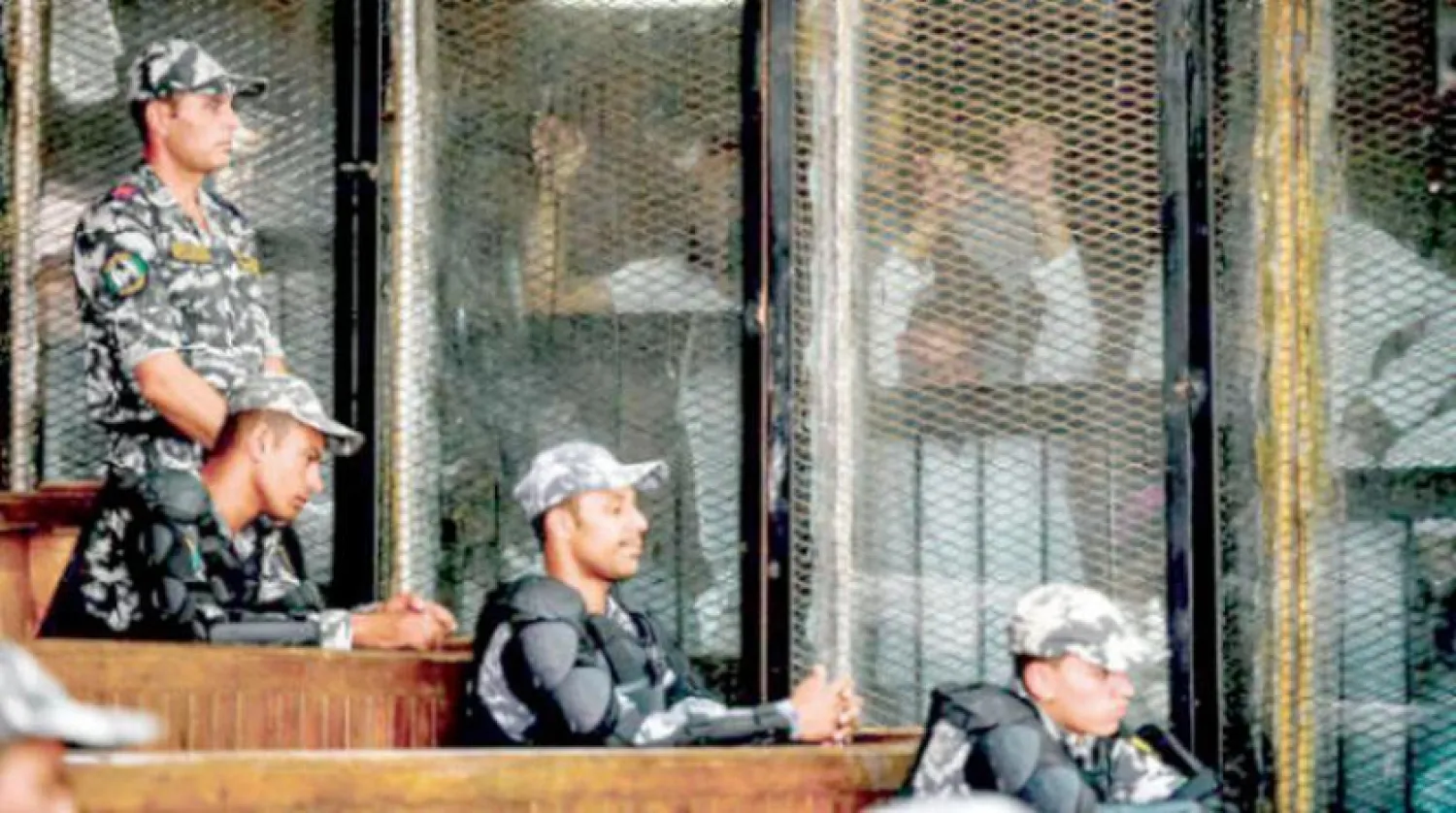An Egyptian court issued verdicts against 26 suspects on Thursday over the dispersal of the 2013 Rabaa al-Adawiya protest.
Egypt's Court of Cassation sentenced 25 to 15 years in prison and one to five years in jail, while acquitting 12 others.
The charges include organizing or participating in a sit-in in the capital’s Rabaa al-Adawiya Square.
The case refers to the incident on August 14, 2013, when the security forces dispersed the sit-in that was triggered by the toppling of former President Mohamed Morsi of the banned Muslim Brotherhood.
The court had heard the statements of head of the East Cairo Police Department Mohamed Tawfiq in this case.
Tawfiq said the police forces were implementing a decision by the public prosecutor to control the crimes committed in the sit-in and securing a safe route for protesters to leave.
However, he added that many police officers were shot once they started the dispersal process, prompting further action.
He revealed that many armed men had hidden among the demonstrators and were using several types of weapons.
The court had previously issued verdicts in the case, ranging from life sentences to the death penalty against Brotherhood leaders and members.
The charges included organizing or participating in the sit-in, blocking roads and the murder of security personnel ordered to disperse the protest.
The investigations stated that the suspects misused funds and sabotaged public property.
They added that the defendants possessed and obtained unlicensed weapons, personally and through an intermediary, with the intent of destabilizing public security, as they possessed and received ammunition, explosives, knives, and tools that were used in the assault on people without a license and justification.









